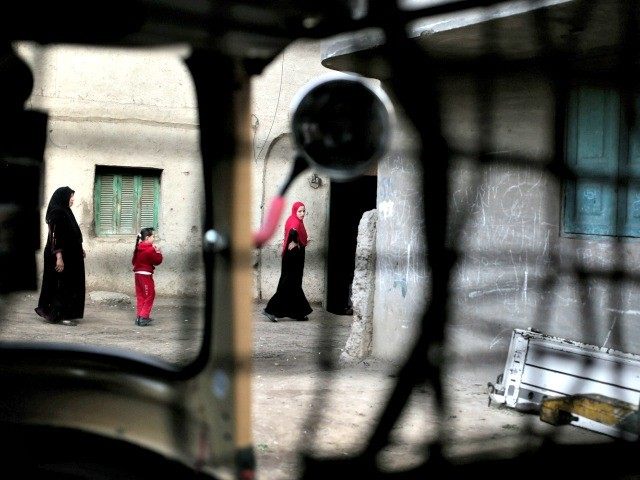As Islam conquered what was formerly a Christian Middle East, what was formerly a Hindu, Buddhist, Zoroastrian, and Christian Central Asia (India, Persia, Afghanistan, parts of Russia), what was formerly a pagan, animist and Christian Africa, Islam also conquered what was formerly a Hindu and Buddhist Indonesia and Malaysia.
As an Arab-and African-style Islam spread via the sword, customs that may or may not have been religiously mandated also spread.
According to a recent report, female genital mutilation (FGM), long associated with Muslims and Africans, is becoming more popular in Malaysia. Some Malaysians believe this is religiously required by the Quran; others believe it is an important Muslim custom, one that will “protect girls from premarital sex as it is supposed to lower their sex drive.”
A spokeswoman for a local women’s rights group, Sisters in Islam, insists that sunat (Malaysian for circumcision) is not mentioned in the Quran.”Previously, it was a cultural practice,” she says, “but now, because of Islamization, people just relate everything to Islam. And when you link something to religion, people here follow it blindly.”
FGM has absolutely no medical benefit and poses the gravest harm ranging from infection, pain when urinating, agony during sex and child birth, fistulas, life-long suffering, and even death.
Increasingly, Malaysian Muslim physicians, often female, are performing FGM procedures (which range from very mild to most severe). According to a 2012 study conducted by Dr. Maznah Dahlui, “93 percent of Muslim women surveyed had been circumcised.” Some gynecologists admit that they perform “a more drastic version with needles and scissors;” other Malaysian physicians claim “less invasive procedures.”
FGM is not banned in Malaysia, although the government has issued medical guidelines for the procedures. Malaysian hospitals are not allowed to perform FGM surgeries. Therefore, many private Muslim clinics have arisen. Some Malaysians are outraged that international organizations, such as the UN, the World Health Organization, and UNICEF are telling Malaysians what to do.
According to Abdul Khan Rashid, a professor at Penang Medical College, “The problem with the West is that it’s so judgmental. Who the hell are you to tell us what to practice and what not to practice?”
Interestingly, Reza Aslan, the author of No God But God: The Origins, Evolution, and Future of Islam and Zealot: The Life and Times of Jesus of Nazareth, in response to Bill Maher last year, claimed that FGM is primarily “a Central African, not a Muslim problem.” However, many experts disagree with Aslan. Egypt, Sudan, and Somalia may be located in north Africa, but they are definitely Muslim-majority countries.
In terms of accurate survey data, Hannah Wettig, who manages the Stop FGM Middle East campaign for Germany, points out that many Middle Eastern women “may be more reluctant to admit that they have been through the procedure, as it’s a more secretive than the public rite of passage in some African countries.”
Contrary to Aslan’s point, women from Kurdish Iran, the UAE, Oman, Indonesia (a fact that UNICEF tried to bury), Thailand, parts of India and Pakistan, as well as women from Malaysia have undergone FGM.
Musawah—“equality” in Arabic—is a global Muslim feminist movement which believes that misogynist custom, not divine religion, is behind anti-woman practices. Muslim feminists in Malaysia– including Marina Mahathir, the daughter of Malaysia’s former Prime Minister– have been active in this movement.
According to Dr. Ida Lichter, the author of Muslim Women Reformers, “when it comes to the reform of discriminatory laws, the distinction between culture and religion is particularly relevant… if cultural traditions may be more amenable to modification especially if advocated by reformers with religious credentials.”
According to Iranian Nobel Peace laureate Shirin Ebadi, culture can be changed “through law.” Before Khomeini, polygamy was “legally restricted in Iran and became culturally unacceptable. When legalized after the revolution, polygamy became more acceptable.”
As medieval Islam spreads its dark shadow like a demon-hawk on the wing, those Muslim feminists who seek freedom and dignity through re-interpretations of the Quran are facing an important but uphill battle.

COMMENTS
Please let us know if you're having issues with commenting.